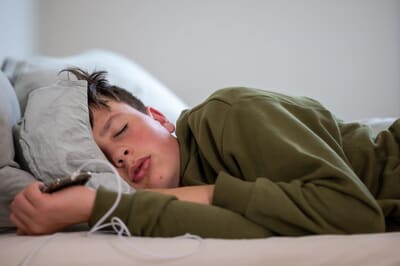The stereotype of a sleep deprived teenager isn't a new one - as soon as kids hit thirteen, they start to sleep more and more, and waking them up for school becomes harder than ever before. However, while your first thought might be to accuse your teenager of being lazy, there are valid reasons as to why your teen needs more sleep.
How much sleep do teenagers need?
Teenagers (any child over the age of thirteen) need around 9 hours sleep per night. While the average adult needs around 8 hours of sleep per night, teenagers need a little extra. It might surprise you to learn that children younger than thirteen need even more sleep than this, at around 9-12 hours sleep per night.
| Age Range | Recommended Hours of Sleep Per Night |
| 6-12 years | 9-12 hours |
| 13-18 years | 8-10 hours |
| 18+ years | 7 or more hours |
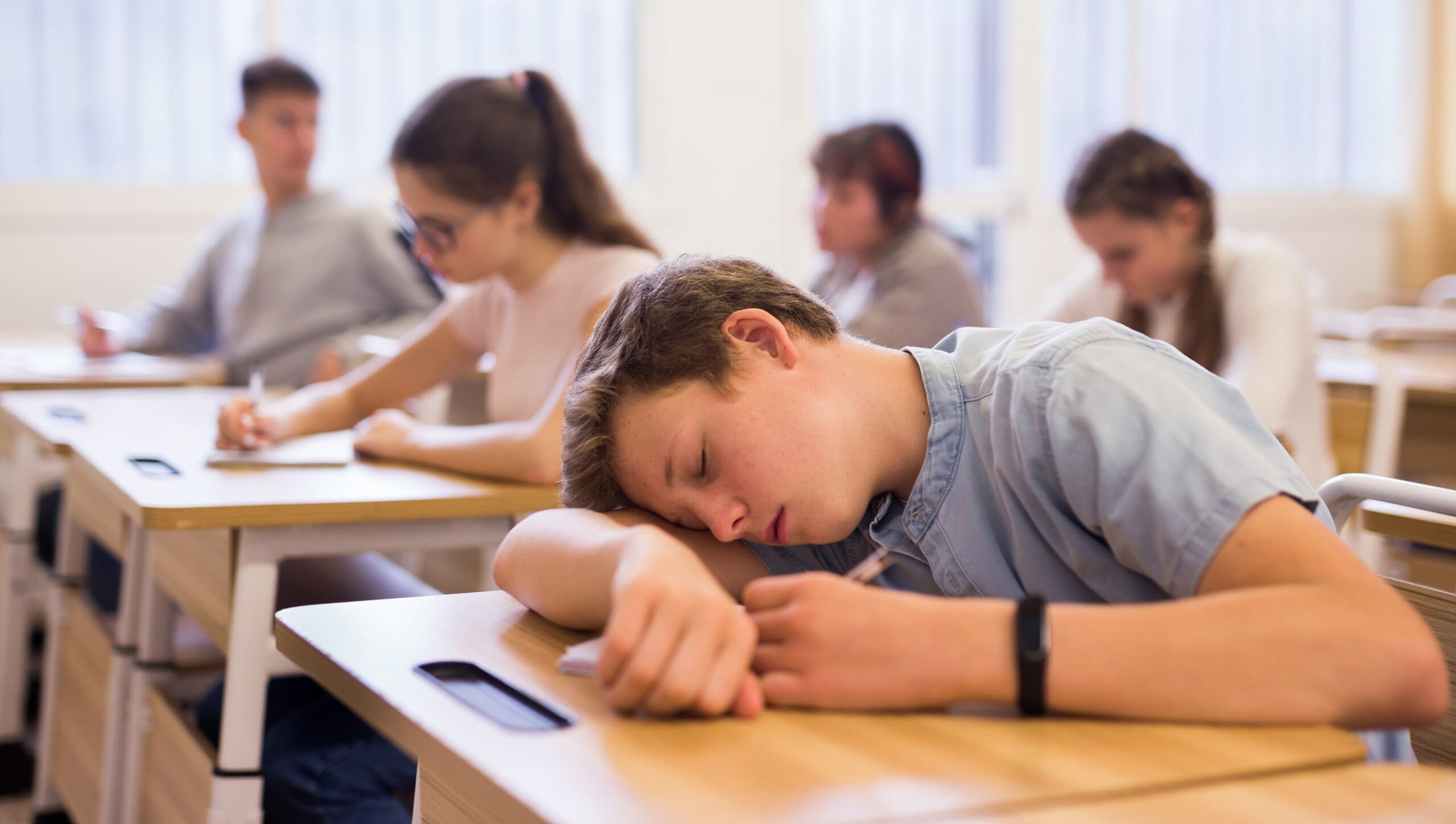
Why do teenagers sleep so much?
But why do teenagers require this amount of sleep? Our Sleep Experts have delved into the stereotype of the sleepy teen and answered the question of why they need more sleep than adults.
1. To properly process emotions and manage mental health
We all remember how emotional we were as teenagers - one minute we’re laughing and the next we’re in a strop arguing with our parents. Teenagers' moods change so quickly due to developments in their brain and changes in hormones, and sleep is key to managing this healthily.
During the deepest sleep cycle, REM (Rapid Eye Movement), our brains process emotions and memories from the day before. This makes it easier for us to make rational decisions and properly assess the problems in our lives. As teenagers navigate the world as they develop into adults, this is fundamental.
Similarly, studies have found a correlation between how much sleep teens get and negative mental health, including self-harming behaviours. Secondary school kids who got less than 8 hours of sleep a night reported more feelings of depression. These teens, compared to those who had slept for 8 hours or more, were shockingly three times more likely to have considered suicide, or actually attempted it.
A lack of sleep can seriously exacerbate mental health problems - our article on ‘How Sleep Deprivation Can Affect Your Mental Health, And Vice Versa’ will inform you on how to ensure your sleeping pattern and mental health are as healthily aligned as possible.
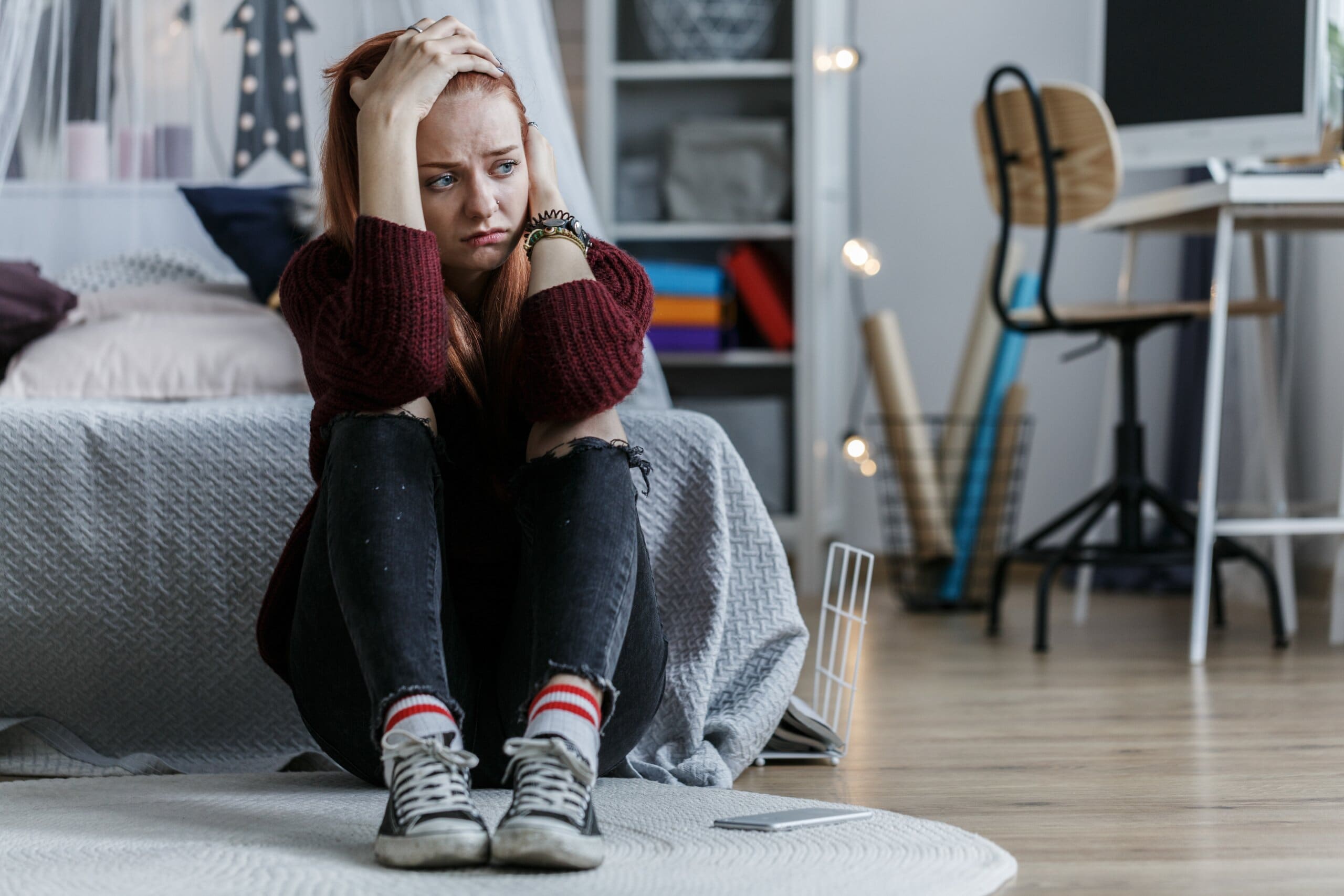
2. To better interpret and tackle social situations
By being able to process emotions healthily and make more rational decisions, teenagers getting enough sleep are able to navigate social situations with more tact than those who are sleep deprived.
Studies have found that youths who have a good sleeping pattern are more able to select appropriate coping strategies for stressful situations, with one study in particular noting that a good night’s sleep helps teens cope with discrimination at school.
Martin Seeley, our CEO and Senior Sleep Expert, explains:
When kids sleep well, they go into school fresh and ready to tackle the day ahead. They’ve processed the previous day properly overnight, and have a healthily functioning brain ready to make rational decisions. High school can be full of stressors, but teens who’ve had a good night’s sleep are able to calmly navigate these situations without becoming emotional or overwhelmed. If you think about it, you’re more likely to know what to say to stand up to a bully with a fresh mind and enhanced alertness than when you’re sleep deprived.
3. For physical growth and brain development
Possibly the most obvious reason as to why teenagers need more sleep than adults is that they are going through key stages of growth and development, in both body and brain. Going through puberty is an uncomfortable time for many, and it's the time of the biggest physical changes to your body in your life.
The brain and body is remodelling itself, producing new hormones, developing a sense of identity, and changing the physical features of the body. This is exhausting work. Sleep is absolutely vital for this development, as it’s when the body is able to do the most self-development and focus solely on creating new pathways in the brain and sending the right messages to the right body parts for healthy growth.
Not only is it a tiring task, but it’s absolutely necessary that you be asleep while your body does most of its development. Therefore, you’ll find your teenager needs to sleep more as their body is telling them to - it’s got work to do!
4. To enhance their cognitive skills and to do better in school
Getting enough sleep plays a crucial role in teenagers' ability to perform well academically. When teens are well-rested, they are better able to sustain focus during lessons, with enhanced attention and concentration. Improved attention allows them to absorb and process information more effectively, leading to a better understanding and retention of the content.
During sleep, the brain actively processes and consolidates this newly learned material, transferring it from short-term to long-term memory storage. This consolidation process improves recall and retrieval of information, improving academic performance in exams.
Sufficient sleep also supports higher-order cognitive functions, such as problem-solving and creativity. Rested teenagers are better equipped to think critically, analyse complex information, and generate creative ideas. This also links back to our previous point about well-rested teens being better able to navigate stressful situations, with the ability to rationalise and navigate them.

5. They’re usually more active than adults
Another reason why teenagers need more sleep than adults is due to their increased physical activity and energy output.
Teenagers are often engaged in various physical activities throughout the day, such as sports and extracurricular activities. These activities can be physically demanding and require a significant amount of energy - even just social interaction at school can require more energy than adults need when chatting to work colleagues (if you think back to your school days, there’s usually more drama involved!)
Adequate sleep helps replenish energy stores, and allows the body to recover from this physical exertion. Sleep plays a vital role in repairing and rebuilding muscles, replenishing glycogen stores, and restoring overall energy levels.
Teenagers' active lifestyles and higher energy expenditure can lead to greater physical fatigue compared to adults who may have calmer routines. As a result, teenagers require more sleep to support their increased activity levels and provide the necessary recovery time for their bodies.
Martin explains:
While adults also need to sleep after physical activity in order to repair muscles and recuperate generally, this is more vital for teenagers as they’re also undergoing bodily developments that take a lot of energy too.
How to make sure your teenager is getting enough sleep
Many teenagers feel that they are always tired. If your teen is coming home from school and napping straight away, or looking like they’re about to fall asleep at the dinner table, there’s no need to immediately panic. What’s important, however, is that they’re getting the right amount of sleep, and healthily.
Even though teenagers should be getting between 8-10 hours of sleep a night, research has found that 70% of teens are getting less than 8 ½ hours sleep.
Here’s three key things your teenager needs to do to ensure they’re getting enough sleep.
1. Ensure they’re sleeping at the right times
Teenagers actually begin to produce melatonin (the sleep hormone) later in the day than adults, which usually results in them staying up later at night. In fact, melatonin production starts about 3 hours later in the 24 hour sleep cycle than adults and younger children.
Studies have found that while most adults begin to release melatonin at around 10pm, teenagers do so at 1am.
This, of course, causes them to stay up later, as well as be sleepier in the morning as they’re still producing melatonin, rather than the collection of hormones - such as serotonin - that the brain releases to wake you up.
To tackle this, teenagers should sleep according to their circadian rhythm, which does mean going to bed later and waking up later where possible. This isn’t overly practical given that school usually starts around 9am, but on weekends you can give your teenager a break, knowing that their strange sleeping habit is actually due to their changing body.
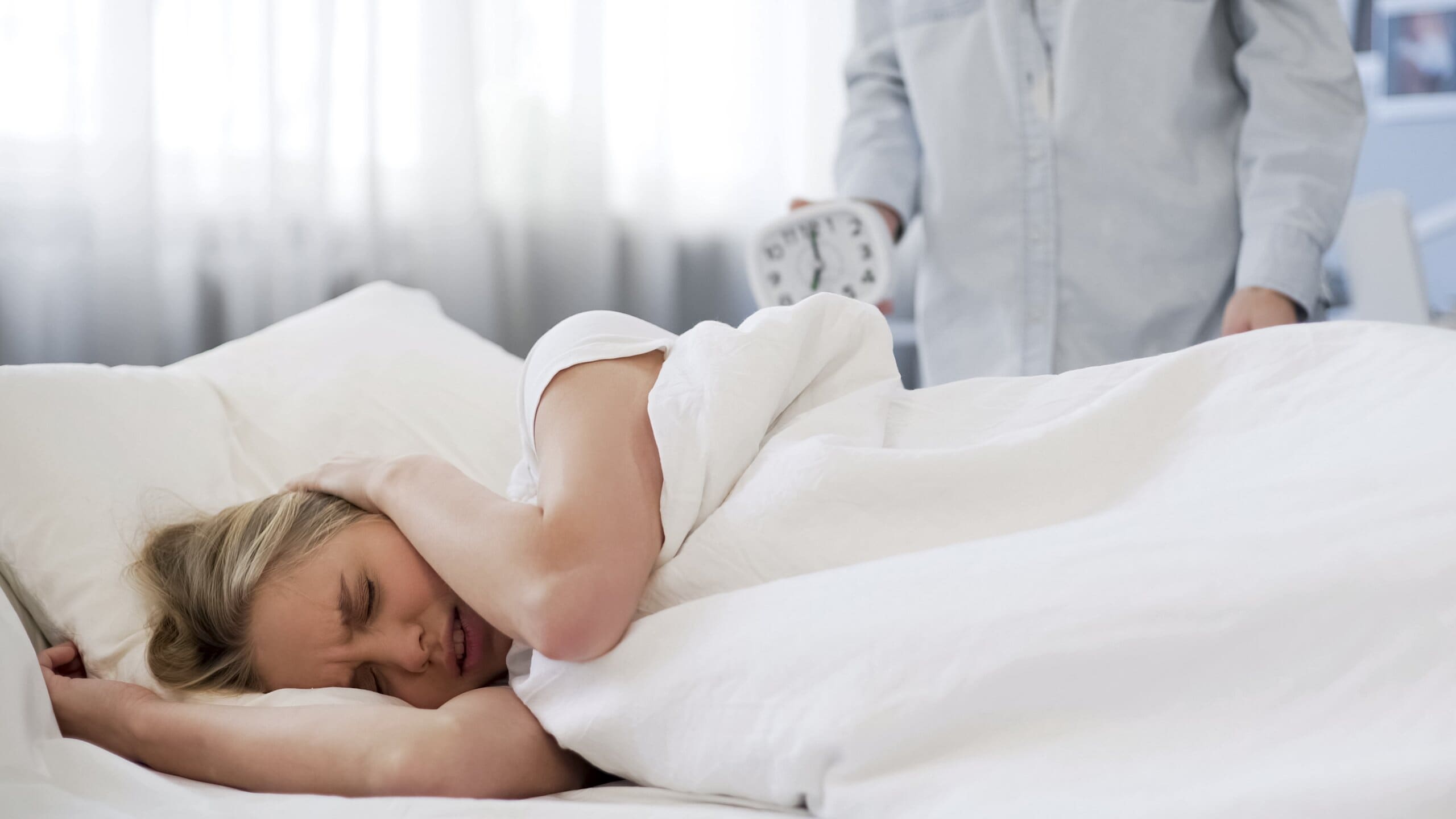
2. Try a natural sleep aid
Your teenager might benefit from a natural sleep aid or supplement, such as some chamomile tea or a lavender pillow spray. This will help them fall into a deep sleep at night, ensuring they’re getting proper, healthy REM sleep where their brain and body can develop the best.
While their melatonin production might be delayed, it’s still possible for teenagers to get to sleep at an earlier time than what their body initially intends. A natural sleep aid will help them drift off into a restful slumber, and where it’s not possible for them to have a lie-in the next morning, it’s vital they try to get to sleep early enough to get at least 8 hours of sleep.
Our articles on ‘The Top 5 Natural Sleep Supplements To Help You Sleep Better’ and ‘The 6 Most Effective Sleep-enhancing Teas’ will give you an idea of what kind of sleep aids work best for your teenager’s specific needs.
3. Discourage phones and other screen use
When exposed to blue light (the type of light that comes from devices such as smartphones, TVs and computers), melatonin production is repressed, as the light signals to your brain that it is daylight.
Due to a natural delay in melatonin production, teenagers might be likely to stay up late on their phone or playing video games to occupy themselves. However, this simply delays the sleep hormone production even further, making it later and later before they’re able to get to sleep, and then making them more tired when they have to wake up at a ‘normal’ time in the morning.
While it’s normally difficult to prise a mobile phone away from most teenagers, you can enforce some rules such as not having a TV in their bedroom, or only playing computer games up to a certain time at night.
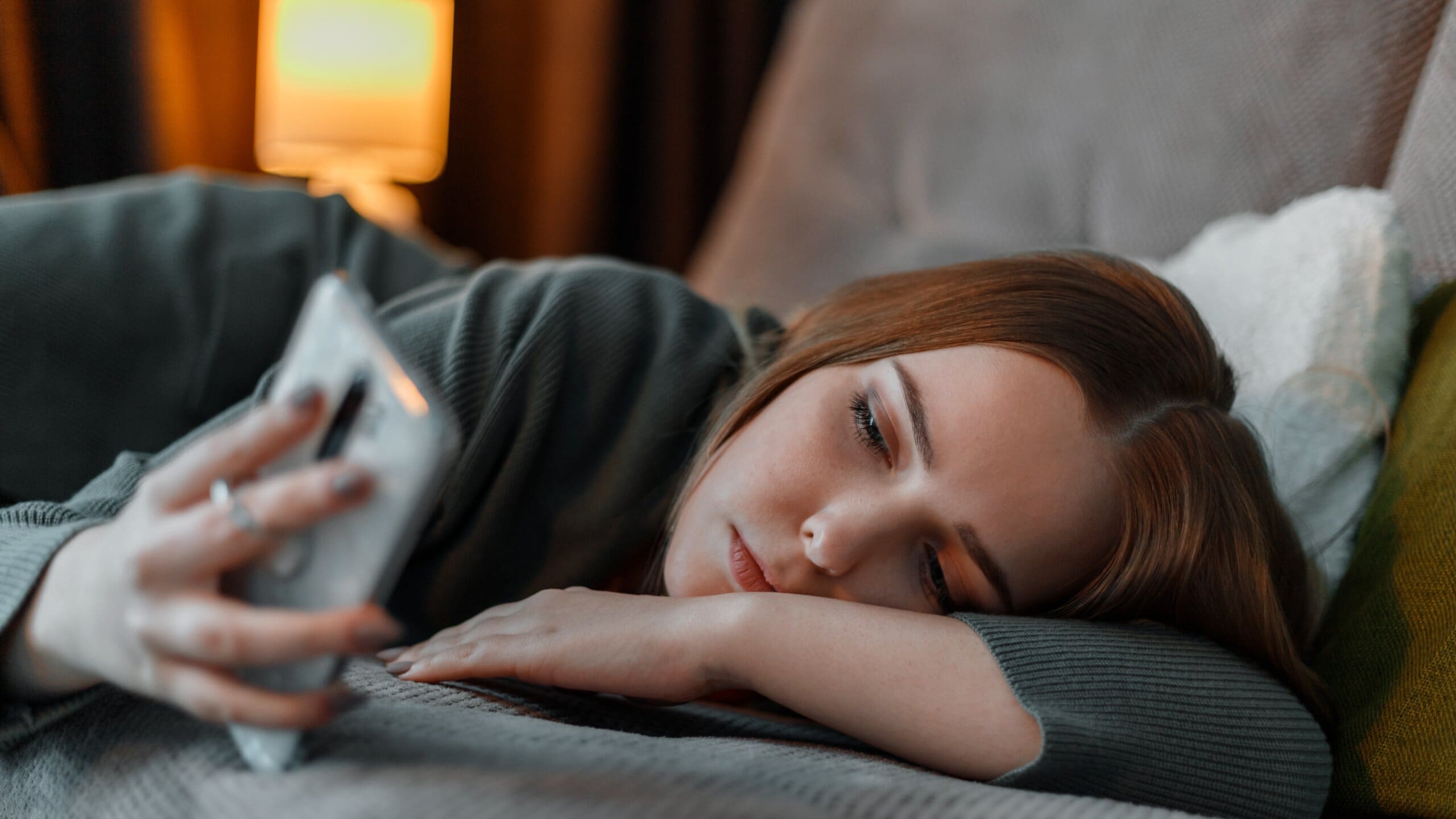
Understanding why your teenager tends to sleep so much is key to being able to help them get into a healthier sleep routine. Our article on ‘The Ultimate Bedtime Routine’ will give you some starters for improving their sleep hygiene, but the main thing to remember is that it’s not their fault they’re so sleepy!
We do recommend, however, that you consider the link between sleeping too much and depression or other mental health problems. Sleep can sometimes be used as an ‘escape’ by teenagers battling depressive thoughts, so if you think your teen’s over-sleeping isn’t just due to being a teenager, we’d suggest encouraging them to speak to a health care professional. Again, our article on ‘How Sleep Deprivation Can Affect Your Mental Health, And Vice Versa’ will advise you on how these two are linked, as well as symptoms to look out for.



